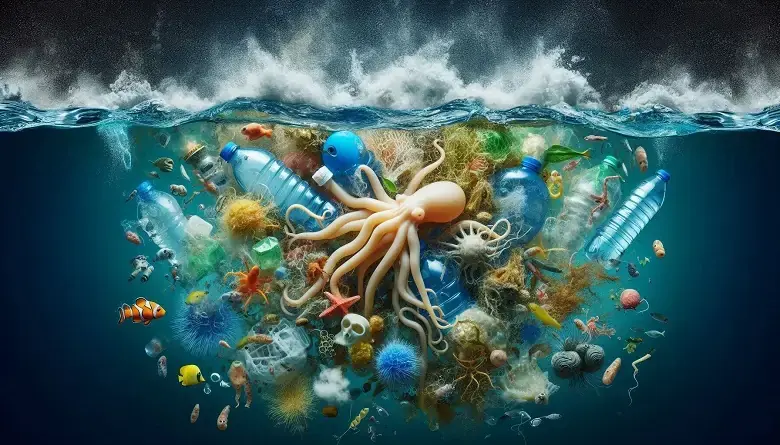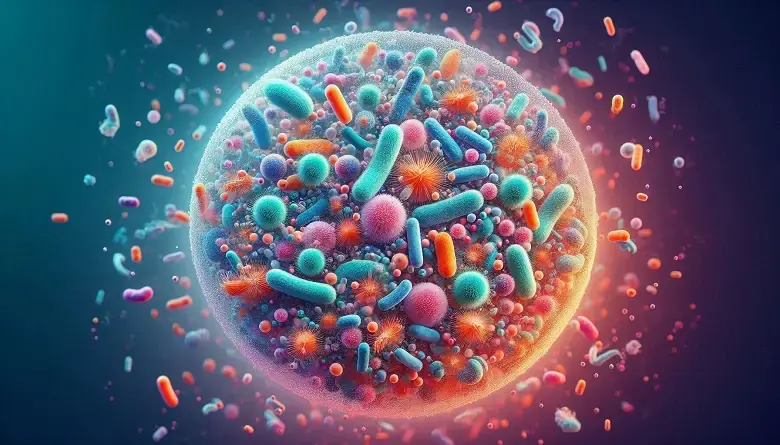Revolutionary Wastewater Bacteria: Nature’s Solution to Plastic Pollution
In a groundbreaking discovery, researchers from Northwestern University have identified a bacterium that can break down polyethylene terephthalate (PET) plastic. This plastic is a significant contributor to global pollution. The newly discovered tough plastic bacteria eating offer a promising solution to the growing crisis of plastic waste that affects our oceans, rivers, and landfills.
The Plastic Pollution Crisis
The world faces an unprecedented challenge with plastic pollution. Each year, millions of tons of plastic waste are generated. PET is particularly problematic due to its durability and resistance to degradation. Commonly found in food packaging and beverage bottles, PET can persist in the environment for decades. As a result, it poses severe threats to wildlife and contaminates water sources.
Discovery of the Bacterium
Recently, the research team isolated a bacterium named Comamonas testosteroni, which thrives in urban waterways and wastewater. Notably, this microorganism has demonstrated an extraordinary ability to degrade PET plastic through a combination of physical and biochemical processes.
Mechanism of Action
The breakdown process begins as the bacterium chews the plastic into tiny fragments. Subsequently, it releases an enzyme that further degrades the material. Consequently, this allows the bacterium to absorb carbon atoms as nutrients.
“We have systematically shown, for the first time, that a wastewater bacterium can take a starting plastic material, deteriorate it, fragment it, break it down, and use it as a source of carbon.” ~ Ludmilla Aristilde, the lead researcher.
This capability highlights the potential for optimizing this enzyme to effectively combat environmental plastic waste.
Implications for Environmental Sustainability
The implications of this discovery are profound. As plastic pollution continues to escalate globally, utilizing bacteria to break down plastics presents an innovative approach to waste management.

Potential Applications
- Wastewater Treatment: Integrating Comamonas testosteroni into wastewater treatment facilities could enhance the breakdown of plastics before they enter natural ecosystems.
- Bioremediation: Furthermore, this bacterium could be used in bioremediation efforts aimed at cleaning contaminated sites where plastic waste has accumulated.
- Enzyme Optimization: Additionally, further research may focus on optimizing the identified enzyme for industrial applications in recycling processes.
Future Research Directions
Ongoing studies will delve deeper into understanding the genetic and metabolic pathways involved in this bacterium’s plastic degradation capabilities. By elucidating these mechanisms, researchers aim to enhance the efficiency of this natural process.
Collaboration with Industry
Moreover, collaborative efforts between academic institutions and industries focused on waste management could pave the way for practical applications of this research. The potential for developing biotechnological solutions to tackle plastic waste is vast and could lead to significant advancements in environmental sustainability.
Conclusion
In conclusion, the discovery of this tough plastic-killer bacterium represents a pivotal moment in addressing the global plastic pollution crisis. As researchers continue to explore its capabilities, there is hope for innovative solutions that could transform how society manages plastic waste.
In light of these findings, it is imperative that industries and policymakers consider integrating such biological solutions into existing waste management strategies. By harnessing nature’s ingenuity, significant strides can be made toward a cleaner and more sustainable future.
For more intriguing insights into other STEM-related topics, visit ENTECH Online. Explore our digital magazine dedicated to inspiring teenagers and young adults to pursue their passions in science, technology, engineering, and mathematics.






